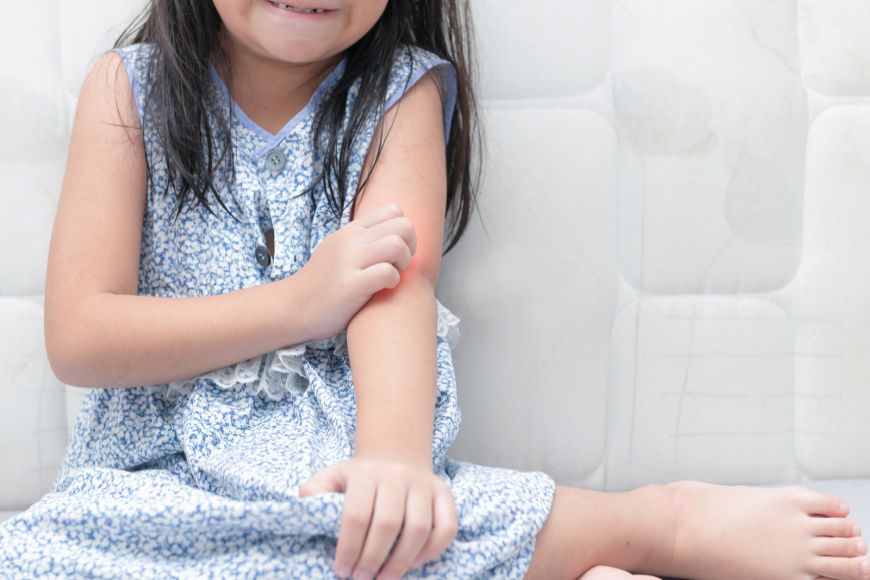Experts at Medcare offer practical tips to tackle your child's eczema
27 March 2019
| Last updated on 31 March 2019
What is eczema?
Eczema, also known as atopic dermatitis, is an itchy skin condition that is more common in children but may occur at any age. If your child is diagnosed with eczema, it means that there is inflammation of the skin, which is called dermatitis.
There are different types of dermatitis that can affect children, but the most common type of dermatitis in children is atopic dermatitis, also known as eczema.
This is characteristically a very itchy rash that is found in different areas of the body; usually at the creases of the arms and legs. It may be found more commonly in those with a family history of asthma, hay fever or food allergies.
What causes eczema?
There is no known single cause for eczema; multiple factors contribute to its development. However, genetic factors play a role, as do various environmental triggers such as:
- Low humidity and/or temperature
- Skin irritants like wool clothing, dust, cosmetics and perfumes
- Infections which may be bacterial, fungal or viral
- Allergens like house dust mites
What makes eczema worse?
Eczema tends to follow a fluctuating course. You can expect your child’s eczema to flare at times when they are stressed, for example, by teething pain. It may flare when they are unwell with viral or bacterial infections and after vaccinations.
Anything that tends to dry the skin, such as soaps, shampoo, bubble baths, detergents or chlorine will aggravate eczema. Moreover, contact with wool, synthetic clothing and animal hair may also aggravate the condition.
How is atopic eczema treated?
Atopic eczema can be treated with topical treatments such as moisturisers, emollients, corticosteroids and calcineurin inhibitors. These topical treatments help control the itching, swelling, and redness associated with eczema.
For severe cases of eczema, oral or intramuscular injections of corticosteroids may be required. Corticosteroids and calcineurin inhibitors work by reducing the inflammation in skin of individuals affected with eczema. Topical corticosteroids are available in a range of strengths and potencies; however, these treatments can have adverse side effects with prolonged use such as thinning of the skin. It is important that these medications are used as directed by your doctor.
In children over the age of 2, over-the-counter 1% hydrocortisone is usually prescribed to treat eczema. For infants, this cream may be used sparingly for short periods of time, under the direction of doctor. As a rough rule of thumb, if you do not see improvement after three days of using this medication, you should go back and see your doctor.
Can atopic eczema be prevented?
To manage symptoms of eczema in your child and help reduce flares consider the following:
- Avoid dressing your child in scratchy materials such as wool
- Avoid using skin irritants such as detergents, perfumes and cosmetics
- Avoid allergens such as house dust mites
- Avoid low humidity and/or temperature
- Reduce stress
At Medcare, we encourage parents to seek the opinion of a healthcare professional when they spot symptoms of eczema in their children. Our doctors will be able to advise what treatments are safe depending on the age of the child and extent of the condition.

Dr. Nabeela Rashid
Specialist Dermatologist & Venereologist
Medcare Hospital Al Safa

Dr. Rahul Chaudhary
Specialist dermatologist
Medcare Medical Centre Discovery Gardens




.png?itok=HBSyMDok)









































































.png)



























.png?itok=0fOAXkOm)

























.png?itok=EH_x0Pha)
